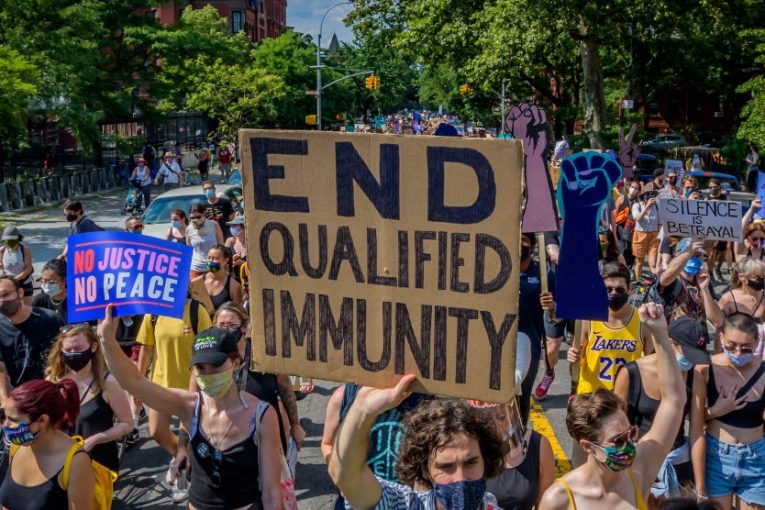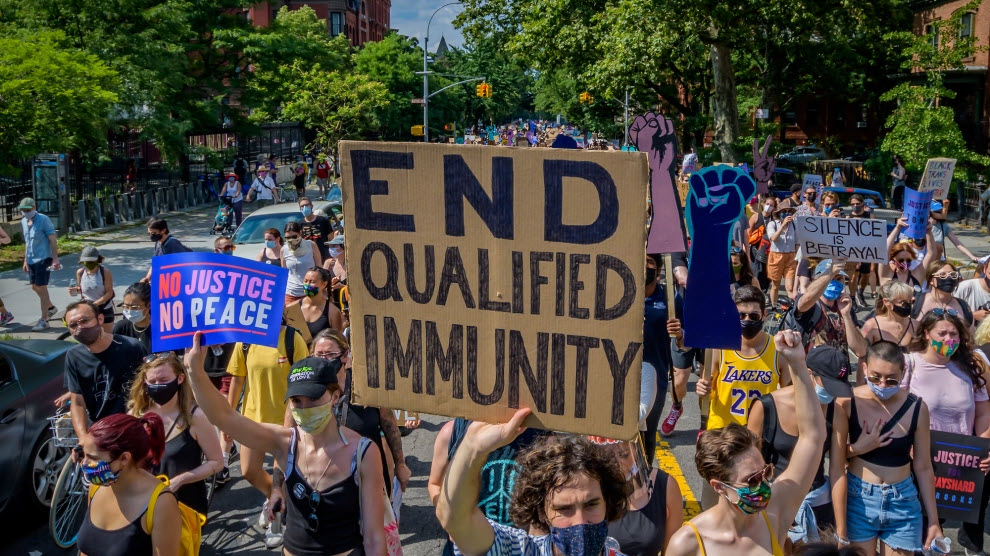

By Wendy Moya and Clarissa Rios
WASHINGTON DC – The U.S. Supreme Court recently quietly shut down a couple of cases which would have prompted the regulation of police behavior, according to Barry Friedman and Maria Ponomarenko, professors at the New York University School of Law and University of Minnesota Law School.
Friedman and Ponomarenko claim that after a turbulent past with police brutality which sparked international outcry and mass demonstrations of protest the past few years, the U.S. Supreme Court privately decided to defend police officers from being held accountable.
Two cases that reached the Supreme Court concerned whether or not police officers could be charged after violating people’s rights through excessive force, Friedman and Ponomarenko explained.
SCOTUS (Supreme Court of the U.S.) upheld, in effect, the doctrine of qualified immunity, which “protects officers from having to pay monetary damages when they violate people’s rights,” they maintain.
After the ruling from the previous week, practically no one could clear it given that the bar to relief was so high, noted the profs now predicting law enforcement officers are likely to be exempted until the Supreme Court steps in and specifies which type of conduct is out of bounds.
Appellate court cases may no longer be sufficient to hold officers responsible, they said, when the justices concluded, “Neither Cortesluna nor the Court of  Appeals identified any Supreme Court case that addresses facts like the ones at issue here.”
Appeals identified any Supreme Court case that addresses facts like the ones at issue here.”
This is in stark contrast to the common belief and practice that lower court cases would be enough to alert officers that they are acting in an unlawful manner, Friedman and Ponomarenko said.
Given that courts insist on victims having to point to nearly identical cases before police can be held accountable, they are making it easy for misconduct to occur, and it appears as though police conduct will easily go unregulated by the courts, argue the professors.
Friedman and Ponomarenko provide that the justices have effectively granted immunity to all except the “plainly incompetent” and those who “knowingly violate the law.”
However, as the professors point out, the SCOTUS makes no move to delineate restrictions to policing procedure, such as “steps that officers should take to de-escalate potentially violent encounters or the information that officers must include in use of force reports.”
Friedman and Ponomarenko argue that if the Supreme Court won’t lay out a basic standard for police officers to follow, then that responsibility falls to state legislators.
Justices must become aware that policing requires clear rules to be outlined, close supervision, and regulation, said Friedman and Ponomarenko, noting the standard remains, as in Graham v. Connor in 1989, that police force only needs to be “objectively reasonable” in the opinion of the officer at the moment which they are using it.
The decision in Graham v. Connor, however, does not elaborate on what officers can do to de-escalate those encounters which can be violent, note the profs, adding it also does not outline the type of information that officers should include in force reports to make reviewing easier.
Society has long asked for the courts to regulate policing and fix it through an application of standards, said Friedman and Ponomarenko, suggesting detailed laws must be created by State legislatures that directly outline what can be done, and what cannot be done.
A limited number of states such as Colorado and Washington implemented reform measures. Such measures include strict rules that indicate when officers can use force, reporting requirements, and data collection all of which are supposed to aid in holding officers accountable.
Despite the efforts being made in some states, there are still too few laws on policing, insist Friedman and Ponomarenko, explaining comprehensive laws must be created that clearly establish what officers can and cannot do, as well as ensure that those rules are being followed.






